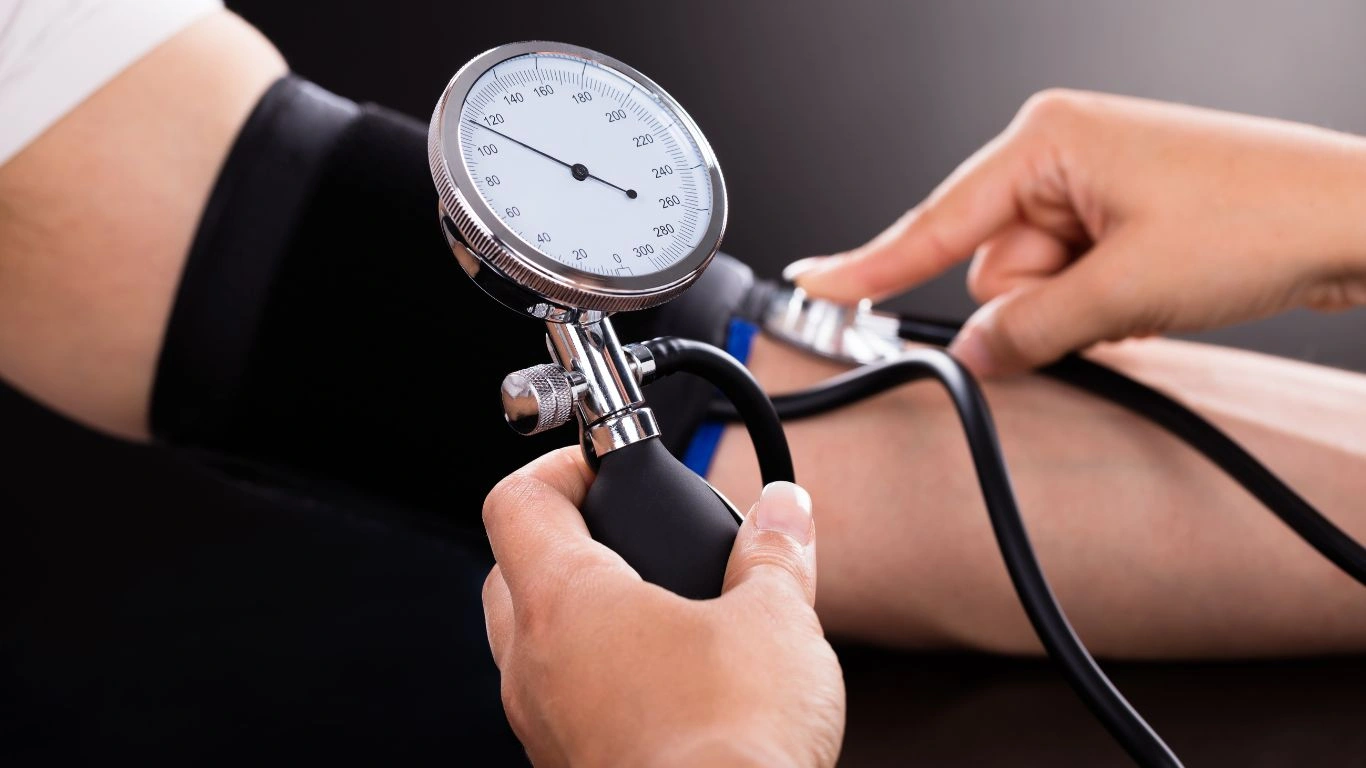Hummus May Help Lower Blood Pressure Naturally
Hummus is a creamy dip made from chickpeas, tahini (ground sesame seeds), olive oil, lemon juice, and garlic. It’s popular in many diets around the world, especially in Mediterranean and Middle Eastern cuisines. You may have heard that hummus is healthy—but is hummus good for blood pressure?
With high blood pressure (also known as hypertension) affecting nearly half of adults in the U.S., it’s no wonder people are looking for simple, natural ways to manage it. In this article, we’ll explore whether adding hummus to your diet can make a positive difference in your blood pressure.
Understanding Blood Pressure and Your Body
Blood pressure is the force of your blood pushing against the walls of your arteries. When your heart beats, it pumps blood through your vessels, delivering oxygen and nutrients to your organs and tissues. This pressure goes up and down during each heartbeat—but when it stays high over time, it can be dangerous.
High blood pressure often doesn’t cause symptoms at first. But over time, it can damage your arteries, heart, brain, and kidneys. That’s why it’s sometimes called a “silent killer.” The good news? Lifestyle changes—including diet—can help manage and even lower your blood pressure.
How Hummus May Help Lower Blood Pressure
Hummus contains several ingredients that are known to support heart health and may help lower blood pressure. Here’s how they work together:
- Chickpeas: These legumes are high in fiber and plant-based protein. Fiber helps keep your arteries clean by lowering “bad” LDL cholesterol, which can contribute to high blood pressure.
- Olive oil: Rich in heart-healthy fats, olive oil is a staple of the Mediterranean diet. It’s been linked to lower blood pressure in several studies.
- Garlic: This pungent ingredient doesn’t just add flavor—it’s been shown to help relax blood vessels and improve blood flow, which can lead to lower blood pressure.
- Lemon juice: A natural source of vitamin C and antioxidants, lemon juice may support healthy blood vessels and reduce inflammation.
- Tahini: Made from sesame seeds, tahini is high in healthy fats and plant compounds that may lower blood pressure slightly.
Together, these ingredients make hummus a heart-friendly snack or spread. Of course, how much you eat and what you eat it with also matter.
What Makes Hummus Heart-Healthy
Here are a few ways hummus can support healthy blood pressure levels:
- Rich in potassium: Chickpeas contain potassium, a mineral that helps balance out the negative effects of sodium. This helps your blood vessels stay relaxed and lowers blood pressure.
- Low in saturated fat: Unlike some snack foods or dips, hummus is made with unsaturated fats that support heart health instead of clogging your arteries.
- High in fiber: Fiber doesn’t just help your digestion—it can also lower cholesterol and reduce inflammation, which are both linked to blood pressure control.
- Plant-based: Plant-based diets have been associated with lower rates of high blood pressure. Hummus is a great choice for those eating less meat or processed foods.
Just remember, portion size matters. Even healthy foods can be high in calories if you eat too much. A serving of hummus is usually about 2 tablespoons.
Other Causes of High Blood Pressure
While eating hummus can be a healthy choice, it’s just one part of the bigger picture. Here are some common causes of high blood pressure:
- Too much salt in your diet
- Being overweight or obese
- Lack of physical activity
- Smoking or drinking too much alcohol
- Chronic stress or poor sleep
- Genetics or family history
- Age—risk increases as you get older
It’s helpful to look at your whole lifestyle and not just one food. But healthy swaps like hummus instead of creamy or salty dips can be a smart step in the right direction.
How to Add Hummus to Your Diet
Not sure how to eat more hummus? Here are some simple ideas:
- Use it as a dip for carrots, cucumbers, or bell peppers
- Spread it on whole grain toast or wraps instead of mayo
- Add a dollop to grain bowls, salads, or roasted veggies
- Use it as a topping for baked potatoes or grilled chicken
Try to choose plain or low-sodium hummus if you’re watching your salt intake. Some flavored varieties may add extra sodium, so check the nutrition label.
When to Talk to Your Doctor
If you have high blood pressure or you’re worried about your heart health, it’s a good idea to talk to your doctor or a registered dietitian. They can help you make a plan that fits your health needs and preferences.
Watch for signs like frequent headaches, dizziness, or chest pain, especially if you haven’t had your blood pressure checked in a while. Most pharmacies and clinics offer free or low-cost screenings.
While foods like hummus can support healthy blood pressure, they aren’t a replacement for medical treatment or prescribed medication. Your doctor may recommend lifestyle changes, medication, or both.
Managing blood pressure is a journey. Every step you take—like adding more plant-based, whole foods to your meals—can help you feel better and lower your risk of heart problems in the long run.
So go ahead and enjoy some hummus with your lunch or snack. It’s a small change that can make a big difference over time. And as always, check with your healthcare provider if you have questions about your diet or health.

Dr. Gwenna Aazee is a board-certified Internal Medicine Physician with a special focus on hypertension management, chronic disease prevention, and patient education. With years of experience in both clinical practice and medical writing, she’s passionate about turning evidence-based medicine into accessible, actionable advice. Through her work at Healthusias.com, Dr. Aazee empowers readers to take charge of their health with confidence and clarity. Off the clock, she enjoys deep dives into nutrition research, long walks with her rescue pup, and simplifying medical jargon one article at a time.







